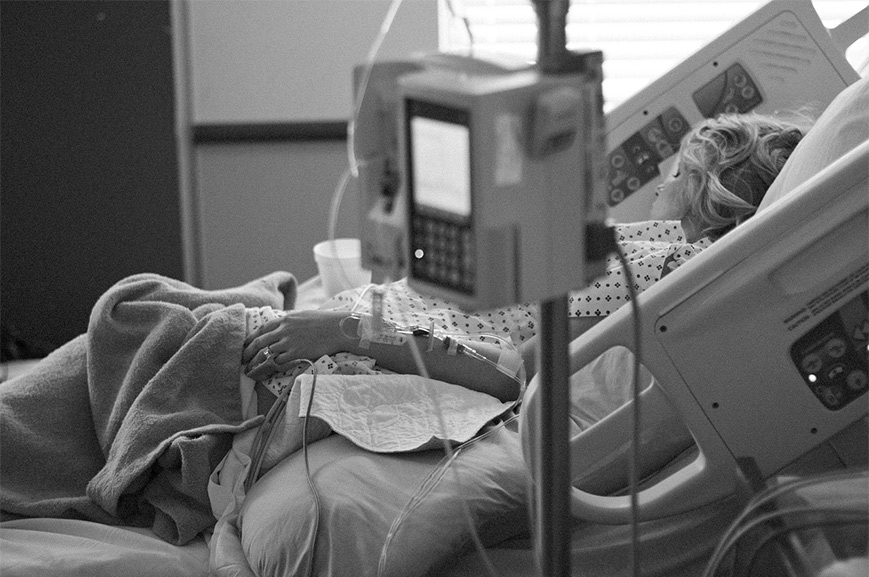
According to the American Cancer Society, three out of four American families will have a family member diagnosed with some form of cancer. That’s a lot of people who need love and support from the people closest to them, lots of opportunities to make a positive impact for people who find themselves fighting the biggest challenge of their lives. It can be a difficult subject for many people and hard to know what to say to someone who’s been diagnosed with a disease that will kill an estimated 609,640 people in 2018 according to the National Cancer Institute, when 27% of all cancer death is associated with lung cancer. Lung cancer is the second most common cancer in both men and women. In men, prostate cancer is more common, while in women breast cancer is more common, but by far, lung cancer is the leading cause of cancer death among both men and women Each year. More people die of lung cancer than of colon, breast, and prostate cancers combined. Cancer affects so many aspects of your life that there are plenty of ways to help someone who’s going through cancer treatment.
The right treatment
Lung cancer is usually diagnosed in late stage because the disease doesn’t have major symptoms until it is already advanced. Early detection of the disease allows defining a suitable treatment and increases the chance of survival. The five-year survival rate of lung cancer is 17% when the disease spreads to other organs, but the survival rate can increase to above 90% if it is diagnosed when it is still local. Where and what kind of treatment a loved one gets is essential to their chances of survival and enjoying a good quality of life. Do some research and find the best place in your area, or in a nearby community, for cancer treatment. Some people follow hasty advice or get scared and opt for an alternative form of treatment without allowing enough time for more reliable and promising approaches. Bear in mind that complementary therapies can be beneficial when used in tandem with a standard treatment regimen. In fact, many well-respected cancer treatment centers incorporate alternative therapies such as yoga, massage therapy, self-hypnosis and meditation. There are several options to treat lung cancer, these include surgery, ablation therapy, chemotherapy, radiation or immunotherapy. You can help by learning which therapy will be the right approach for your loved one in order to get the most of their treatment options.
Being there
Just being present and willing to listen might be the most important service you can perform for someone who’s been diagnosed with cancer. It’s natural to feel awkward around a cancer patient, even someone you’ve known all your life. But in truth it’s not what you say that matters, but that you allow them to say what’s on their mind without second-guessing, interrupting or being contradictory. Your friend or relative needs someone he can vent to, an outlet for expressing his hopes and fears. It’s not an easy thing to do; many people may feel too uncomfortable or find it too painful to talk about a loved one’s mortality. Don’t be afraid to share your emotions. Don’t be afraid to cry if you feel like it, or to joke and share a laugh if the opportunity arises.
Offer assistance
People undergoing radiation and chemotherapy often are physically unable to perform activities of daily living like getting kids to and from school, going to the grocery, or mowing the lawn. Little things that most of us take for granted mean a lot under such circumstances. Ask if there are any errands you can run or favors you can do for them. You’ll give a loved one peace of mind knowing his responsibilities are in good hands. If you’re good at coordinating activity, ask other family members if they can assist with meal preparation or help getting bills paid. You might be surprised at how much helping with relatively simple tasks will mean to someone who’s undergoing cancer treatment.
Clean and declutter
When a cancer patient gets home from a treatment session, he or she is usually too worn out to do housework. You can help by picking up and straightening loose items and papers that are lying around the house, leaving them with one less thing to worry about. Out of this decluttered space your loved one will find it easier to establish a space for meditation and relaxation. It should be in a secluded part of the house in a calm and quiet space that includes green plants, scented candles and soft, relaxing music.
Your presence and willingness to help in any way you can will be a reassuring source of comfort for your loved one just when it’s needed most. And don’t feel guilty if you’re nervous about the situation. Being present is what truly matters.
Scott Sanders